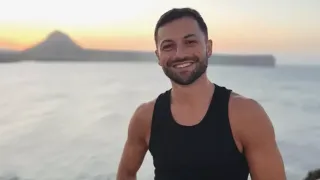April 26, 2023
Bud Light Fumbles, but Experts Say Inclusive Ads Will Stay
Dee-Ann Durbin READ TIME: 4 MIN.
Bud Light may have fumbled its attempt to broaden its customer base by partnering with a transgender influencer. But experts say inclusive marketing is simply good business – and it's here to stay.
"A few years from now, we will look back on this 'controversy' with the same embarrassment that we feel when we look back at 'controversies' from the past surrounding things like interracial couples in advertising," said Sarah Reynolds, the chief marketing officer for the human resources platform HiBob, who identifies as queer.
On April 1, transgender influencer Dylan Mulvaney posted a video of herself cracking open a Bud Light on her Instagram page. She showed off a can with her face on it that Bud Light sent her – one of many corporate freebies she gets and shares with her millions of followers.
But unlike the dress from Rent the Runway or the trip to Denmark from skincare brand Ole Henriksen, the backlash to the beer can was fast and furious. Three days after Mulvaney's post, Kid Rock posted a video of himself shooting cases of Bud Light. Shares of Bud Light's parent, AB InBev, temporarily plunged.
This week, Anheuser-Busch – AB InBev's U.S. subsidiary – confirmed that Alissa Heinerscheid, its vice president of marketing, and her boss, Daniel Blake, are taking a leave of absence. The company won't say when they will return or whether they're being paid.
For some, the partnership went too far at a time when transgender issues – including gender-affirming health care and participation in sports – are a divisive topic in state legislatures.
"Whether the issue is trans people or anything else, the majority of consumers are pretty vocal about the fact they don't want brands lecturing them or stuffing politics or social issues down their throat," said John Frigo, the head of digital marketing for Best Price Nutrition. "If you sell beer, just make beer and leave it at that."
But others – including Heinerscheid herself – say reaching out to younger and more diverse consumers is crucial. According to a 2021 Gallup poll, 21% of people in Generation Z identify as lesbian, gay, bisexual or transgender, compared to 3% of Baby Boomers. Gallup has also found that younger consumers are the most likely to want brands to promote diversity and take a stand on social issues.
"I had a really clear job to do when I took over Bud Light. And it was, this brand is in decline. It's been in decline for a very long time. And if we do not attract young drinkers to come and drink this brand, there will be no future for Bud Light," Heinerscheid said last month in an episode of Apple's "Make Yourself at Home" podcast.
Bud Light and Mulvaney declined requests to talk to The Associated Press for this story.
Bud Light has long been America's best-selling beer. But its U.S. sales are down 2% so far this year, part of a long-running decline as younger consumers flock to sparking seltzers and other drinks, according to Bump Williams Consulting. Those sales declines accelerated rapidly in April. The week ending April 15, Bud Light's sales dropped 17% compared to the same week a year ago. Meanwhile, rivals Miller Lite and Coors Lite both saw their sales jump more than 17%.
Marketing experts say it's possible Bud Light's experience will cause other brands to rethink using transgender people in their advertising. Joanna Schwartz, a professor at Georgia College and State University who teaches a course on LGBTQ+ marketing, said companies will still want to reach transgender consumers and their supporters, but might shift to social media and more targeted ads.
"They're walking an extremely fine line. They want to appeal to everyone, but that includes people who don't like each other," Schwartz said of Bud Light.
Still, Schwartz said, there are plenty of brands that have successfully featured transgender or non-binary people in their marketing. In 2016, Secret deodorant ran an ad featuring a transgender woman in a bathroom stall, debating whether to walk out and face other women at the sink. Pantene shampoo has run ads and short films supporting transgender people in 2021 as part of its Hair Has No Gender project. And Coca-Cola's 2018 Super Bowl ad featured young people using different pronouns to describe themselves.
Thomas Murphy, an associate professor of branding at Clark University, said he tells brands that want to be inclusive to run ads with real people who can talk about the company's efforts.
"They can have employees who say, 'I love Bud Light. I have worked here for 20 years, there are inclusive programs and I came here because I wanted a company that would embrace me,'" he said. "Who couldn't see and hear that person and say, 'What a great company'?"
Instead, Bud Light wound up alienating even transgender customers because it didn't support Mulvaney after the boycott calls began, Schwartz said. Anheuser-Busch CEO Brendan Whitworth issued a statement on April 14 but it didn't specifically mention the controversy.
"We never intended to be part of a discussion that divides people," Whitworth said.
By comparison, Nike – which also faced some boycott threats after sending workout clothes to Mulvaney – supported the transgender community in an Instagram post, encouraging followers to be kind and inclusive. Nike didn't respond to requests for comment.
Manveer Mann, an associate professor of marketing at the Feliciano School of Business at Montclair State University, said Bud Light should have anticipated the backlash and had a plan in place to handle it.
Nike learned that lesson in 2018, when it featured football player Colin Kaepernick – who had protested police brutality by kneeling during the national anthem – in its ads. Mann said Nike briefly faced boycott threats, but it stood by Kaepernick and its sales quickly recovered.
Mann thinks Bud Light's sales will ultimately recover, too. But in the meantime, it's alienating everyone, she said.
"The communication from Bud Light is not clear. Is this coming from your value set or are these things just trending?" Mann said. "You have to know what your values are and what are the values of the customers you are trying to reach."






